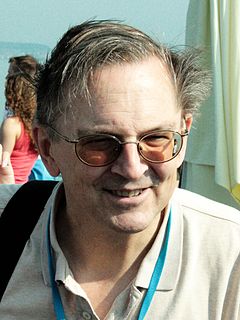A Quote by Jacques Derrida
Why is it apparently the philosopher who is expected to be "easier" and not some scientist or other who is even more inaccessible to the same readers?
Quote Topics
Related Quotes
When you ask why did some particular question occur to a scientist or philosopher for the first time, or why did this particular approach seem natural, then your questions concern the context of discovery. When you ask whether the argument the philosopher puts forth to answer that question is sound, or whether the evidence justifies the scientific theory proposed, then you've entered the context of justification. Considerations of history, sociology, anthropology, and psychology are relevant to the context of discovery, but not to justification.
While voicing animations I use the same acting muscles, even more because you have to channel all into your voice, whereas when you're live-action you get props and scenery and other actors and your facial expressions and what happens to help you. It's not necessarily easier as an actor to do voice-overs, it's easier as a person.
There are, of course, a number of epistemological questions, some of which lie more in the province of the philosopher than they do the economist or the social scientist. The one with which I am particularly concerned here is that of the role of knowledge in social systems, both as a product of the past and as a determinant of the future.
The philosopher, who with calm suspicion examines the dreams and omens, the miracles and prodigies, of profane or even of ecclesiastical history, will probably conclude that, if the eyes of the spectators have sometimes been deceived by fraud, the understanding of the readers has much more frequently been insulted by fiction.
What are people released from prison expected to do? How are they expected to survive? Can't get a job, locked out of housing, and even food stamps may be off limits. Well, apparently what we expect them to do is to pay hundreds or thousands of dollars in fees, fines, court costs, and back child support (which continues to accrue while you are in prison).
We write for the same reason that we walk, talk, climb mountains or swim the oceans — because we can. We have some impulse within us that makes us want to explain ourselves to other human beings. That’s why we paint, that’s why we dare to love someone- because we have the impulse to explain who we are. Not just how tall we are, or thin… but who we are internally… perhaps even spiritually. There’s something, which impels us to show our inner-souls. The more courageous we are, the more we succeed in explaining what we know.







































